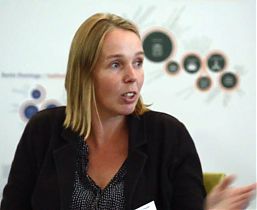Overriding the URBAN / NON-URBAN DIVIDE
20 April 2015 @ Global Soil Week
This first dialogue takes an unconventional angle by addressing new approaches that transcend the urban age discussion (e.g. 50% live in cities) and break with the idea of the bounded city in which the urban and the non-urban are opposed and spaces are classified, according to their form, on the urban-rural continuum.
What if, as Brenner and Schmid’s critical urban theory on planetary urbanisation suggests, the putative non-urban is internalised in the theory of urbanisation and we no longer talk about form but about processes of concentrated and extended urbanisation? What does this shift mean when we address resource flows, food security and inequality issues?
The practical perspectives from Chennai, Bogota and Jakarta ground the debate in reality and form the basis of a critical discussion on the ‘New Urban Agenda’ and its ‘Urban-Rural Linkages’.
Download the dialogue report here FINALreport_Session1.3.pdf
Introduced by:
Katleen De Flander
Institute for Advanced Sustainability Studies, Potsdam
Áine Ryan
ANCB The Aedes Metropolitan Laboratory, Berlin
Framed and moderated by:
Pieter de Vries
Senior lecturer and researcher, Chairgroup of Sociology of Development and Change, Wageningen University
With keynotes from:
Pushpa Arabindoo
Lecturer in geography and urban design, University College London; co- director UCL Urban Laboratory; editor (CITY Journal, Geography)
Provincialising planetary urbanisation: situating Chennai between its region and the global
Carolina Chica Builes
Director of regional, national and international integration Secretariat of Planning – Bogotá Special Administrative Planning Region – Central Region
A case of new territorial arrangements that seek to overcome the urban-rural dichotomy
AbdouMaliq Simone
Research professor, Max Planck Institute for Social and Ethnic Diversity and visiting professor of Sociology at Goldsmiths College, University of London
When does the urban come, does it go, or does it simply change course and form, all of the time? Reflections from Jakarta
Image credits Dialogue 1: IASS/StandArt









